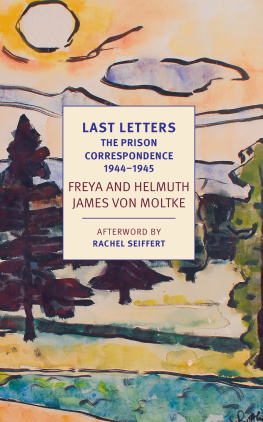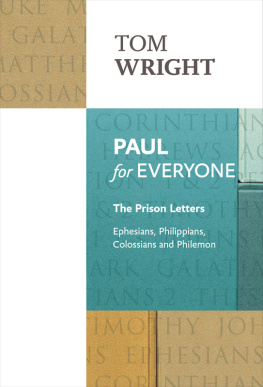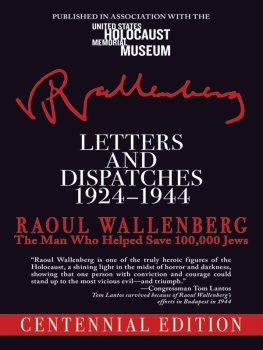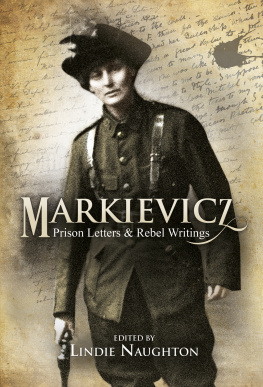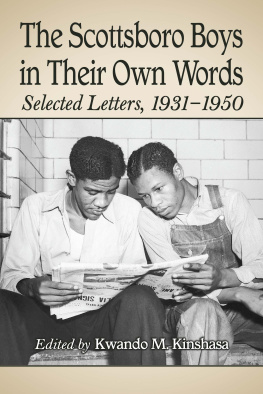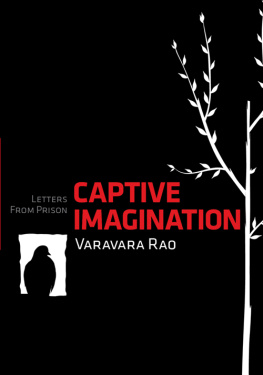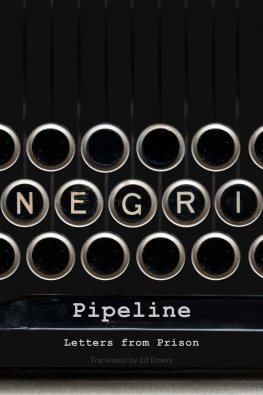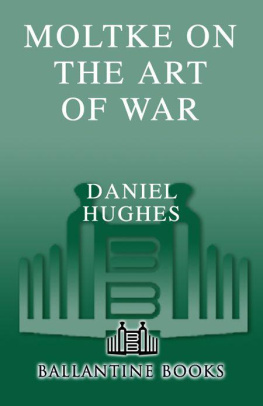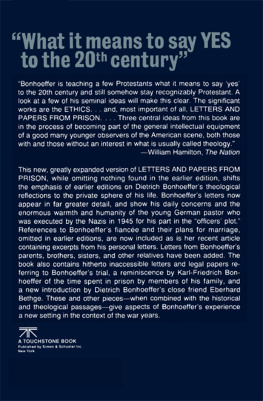
HELMUTH JAMES VON MOLTKE (19071945) was born into a well-known Prussian family at Kreisau, the Silesian estate of his great-granduncle Helmuth von Moltke the Elder, a decorated field marshal credited with defeating the French in the Franco-Prussian War. The eldest of five siblings, Helmuth James studied international law in Germany and Austria, where he met Freya Deichmann. The couple was married in 1931; their sons, Helmuth Caspar and Konrad, were born in 1937 and 1941. With the outbreak of World War II, Helmuth James was drafted into the Abwehr, the German military intelligence service. Beginning in 1940, he convened what would later be called the Kreisau Circle: a group of dissidents who met in small, separate groups but came together three times at the Kreisau estate to discuss their opposition to Nazism and their vision for a postwar democratic ordera federated Europe. Von Moltke was arrested in January 1944 for having warned an acquaintance of his imminent arrest. In the wake of the assassination attempt on Hitler of July 20, 1944, the Nazis discovered many members of the broader resistance, including of the Kreisau Circle, and began to understand Helmuths role in that circle. He was charged with high treason and was tried and executed in January 1945.
FREYA VON MOLTKE (19112010) was born Freya Deichmann into a bankers family in Cologne. She studied law at the University of Bonn, then moved to Berlin after marrying Helmuth von Moltke; she received her law degree at the University of Berlin in 1935. After the death of Helmuths mother, Dorothy, in 1935, Freya moved to Kreisau to take charge of the estate, which Helmuth had just managed to save from insolvency a few years prior, while he remained in Berlin. His almost daily letters home from those years were published as Letters to Freya. During her husbands incarceration and trial, Freya traveled often to Berlin to be near Helmuth, provide him with what provisions she could, and write to him the letters that the prison priest Harald Poelchau smuggled in and out. After the war, she moved with her sons to South Africa, but, appalled by the apartheid system, returned to Germany in 1956, and then moved, in 1960, to Vermont to live with the historian and social philosopher Eugen Rosenstock-Huessy. After 1989, she became involved in efforts to establish Kreisau as a center for international youth exchange, serving as the honorary chair on the board of the Kreisau Foundation for Mutual Understanding in Europe, and in 2004 she helped to establish the Freya von Moltke Foundation for the New Kreisau. In 1999, she was awarded an honorary doctorate from Dartmouth College.
LAST LETTERS
The Prison Correspondence
S EPTEMBER 1944 J ANUARY 1945
HELMUTH JAMES VON MOLTKE and FREYA VON MOLTKE
Edited by
HELMUTH CASPAR VON MOLTKE,
DOROTHEA VON MOLTKE,
and JOHANNES VON MOLTKE
Translated from the German by
SHELLEY FRISCH
Afterword by
RACHEL SEIFFERT
NEW YORK REVIEW BOOKS

New York
THIS IS A NEW YORK REVIEW BOOK
PUBLISHED BY THE NEW YORK REVIEW OF BOOKS
435 Hudson Street, New York, NY 10014
www.nyrb.com
Copyright 2011, 2013 by Verlag C. H. Beck oHG
Translation and translators note copyright 2019 by Shelley Frisch
Editors Introduction copyright 2019 by Helmuth Caspar von Moltke, Dorothea von Moltke, and Johannes von Moltke
Afterword copyright 2019 by Rachel Seiffert
All rights reserved.

The translation of this work was supported by a grant from the Goethe-Institut.
Cover art: Karl Schmidt-Rottluff, Kreisau, Blick vom Park mit dem Flchen Peile auf die Kltschenberge (detail), c. 1942; 2019 Artists Rights Society (ARS), New York / VG Bild-Kunst, Bonn; photo: Ren Pech, Schlesisches Museum zu Grlitz.
Cover design: Katy Homans
Library of Congress Cataloging-in-Publication Data
Names: Moltke, Helmuth James, Graf von, 19071945. | Moltke, Helmuth Caspar von, 1937 editor | Moltke, Dorothea von, editor | Von Moltke, Johannes, 1966 editor | Frisch, Shelley Laura, translator | Moltke, Freya von. Correspondence. Selections. English.
Title: Last letters : the prison correspondence between Freya and Helmuth von Moltke, September 1944January 1945 / by Helmuth James and Freya von Moltke ; edited by Helmuth Caspar von Moltke, Dorothea von Moltke, and Johannes von Moltke ; afterword by Rachel Seiffert ; translation by Shelley Frisch.
Description: New York : New York Review Books, [2019] | Series: New York Review books classics | Includes bibliographical references and index.
Identifiers: LCCN 2019012596 (print) | LCCN 2019020086 (ebook) | ISBN 9781681373829 (epub) | ISBN 9781681373812 (alk. paper)
Subjects: LCSH: Moltke, Helmuth James, Graf von, 19071945Correspondence. | Moltke, Freya vonCorrespondence. | Anti-Nazi movementGermany.
Classification: LCC DD247.M6 (ebook) | LCC DD247.M6 A413 2019 (print) | DDC 940.53/43092 [B]dc23
LC record available at https://lccn.loc.gov/2019012596
ISBN 978-1-68137-382-9
v1.0
For a complete list of titles, visit www.nyrb.com or write to:
Catalog Requests, NYRB, 435 Hudson Street, New York, NY 10014
CONTENTS
EDITORS INTRODUCTION
I.
Sometimes I think about the fate of our long written conversations, and whether you and our sons will find them worth reading after ten, twenty, or more years. They originated in a situation that most likely has rarely been captured in writing, because normally the contact winds up being ruptured or monitored. When this time is over, when true peace has been restored, what will people say about these kinds of reflections? Will they be understood? Will it be believed that these were extreme situations that made people hysterical, will people be able to grasp the notion that a human being, this curious animal, can grow accustomed even to being executed?
H ELMUTH James von Moltke wrote these words on January 2, 1945, three weeks before his execution for high treason by the Nazis. The long written conversations in this volume to which he refers had taken place over the course of the preceding three months in the form of near daily letters between himself and his wife, Freya, smuggled in and out of a Nazi prison at great risk by the prison chaplain. Thinking back over the exchange in the face of death and with war still raging about him in Berlin, Helmuth nevertheless manages to imagine a better future: a future for his wife and sons, a future after National Socialism, a future without war. To the degree that such a future is our present, the questions that Helmuth poses are for us to answer, and the present volume invites the reader to do just that.
These letters allow us to take part in the written conversations of Helmuth and Freya, suspended, as it were, between their married life prior to Helmuths arrest and the certainty of his approaching trial and possible death, between hope and occasional despair, between love, faith, and cool rationality. Few accounts can match the immediacy of daily letters such as these and their power to capture how people think, feel, and act in the face of a murderous regime, how we as curious animals react, behave, and preserve our humanity in the face of the extreme terror that humans, too, are capable of.
When the Nazis seized power in Germany on January 30, 1933, Helmuth and Freya were two young, newly married law students pursuing their studies in Berlin. Opposed to Adolf Hitler from the very start, the couple became actively involved in the resistance against the regime in 1940, when they jointly agreed to assume the risks and began to engage in conspiratorial activity, gathering like-minded friends and collaborators in a group that would become known as the Kreisau Circle. One of the most important resistance groups against the Nazi regime, the Kreisau Circle devised detailed political and economic plans for a democratic and European Germany after Hitler. Conscripted to work as a lawyer for the German Wehrmacht by day, Helmuth used his evenings, business trips abroad, and many a lunch hour conducting what he called our internal war against the dictatorship.

